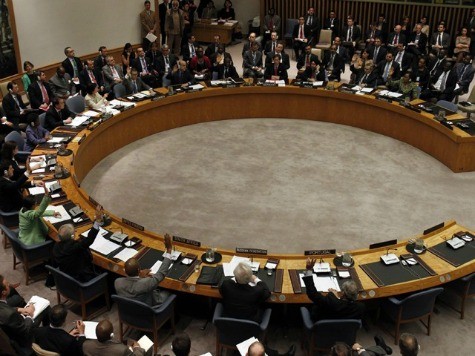In an interview on National Public Radio’s Morning Edition on Monday, the U.S. Ambassador to the United Nations, Samantha Power, declined to say whether a U.S. strike on Syria would be legal without the approval of the UN. She was asked the question directly, and again in a follow-up, by host Steve Inskeep:
Inskeep: Let me ask a central question for you, because you’re representing the U.S. at the United Nations, which has not authorized a strike. Would an American strike on Syria be legal?
Power: If we take military action in this context, it’ll be a legitimate, necessary, and proportionate response to this large-scale and indiscriminate use of chemical weapons by the regime. Nobody has tried harder than this administration to work through the Security Council over two-and-a-half years. As you’re well aware, of course, even modest humanitarian and political measures have been rejected by Russia in New York. We’ve had three resolutions put forward, all of which have been vetoed by Russia, and on chemical weapons specifically and perhaps most heartbreakingly, even on the day, on August 21, when those ghastly images were broadcast all around the world, we couldn’t even get a press release out of the Security Council, condemning, generically, use of chemical weapons.
Inskeep: So let me just make sure that I’m clear on this. You’re saying that something needs to be done, and it is time to go outside the legal system, outside the legal framework. You believe it is right to do something that is just simply not legal.
Power: In the cases we’ve seen in the past, there are times where there is a patron [sic] like Syria backed by Russia–we saw this in Kosovo as well, where it was just structurally impossible to get meaningful international action through the Security Council, and yet in this case you have the great reach of such a critical international norm in terms of the ban on chemical weapons use, it is very important that the international community act so as to prevent further use.
Power’s argument is substantively identical to the argument for the Iraq War, though she declined to acknowledge that the use of force outside of UN approval may very well be both legal and “legitimate.” She seemed inclined to preserve the argument that war outside the UN is illegal, while implying an exception for wars that are waged to serve a “legitimate” international or humanitarian interest.

COMMENTS
Please let us know if you're having issues with commenting.